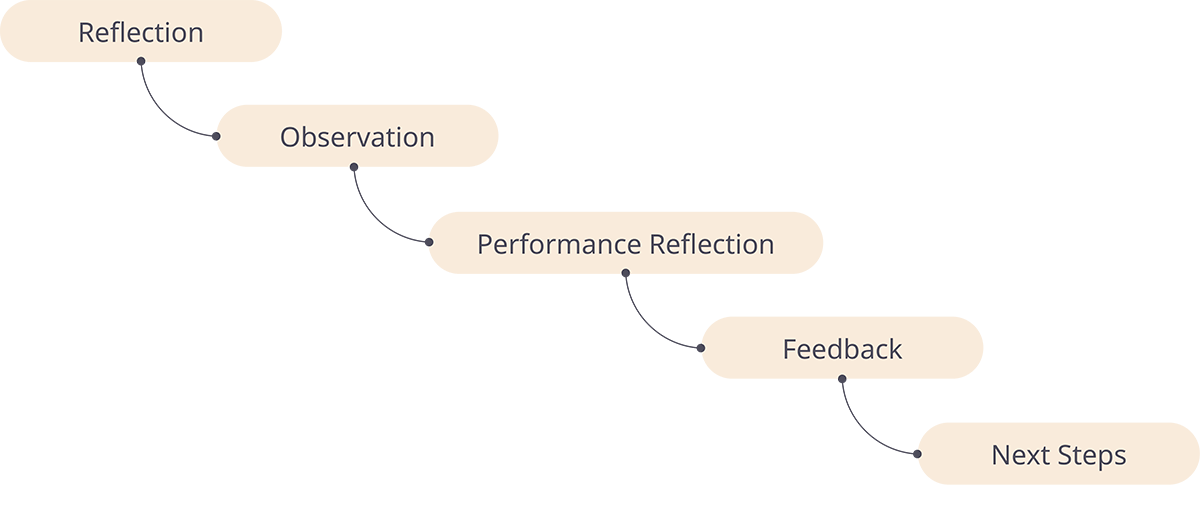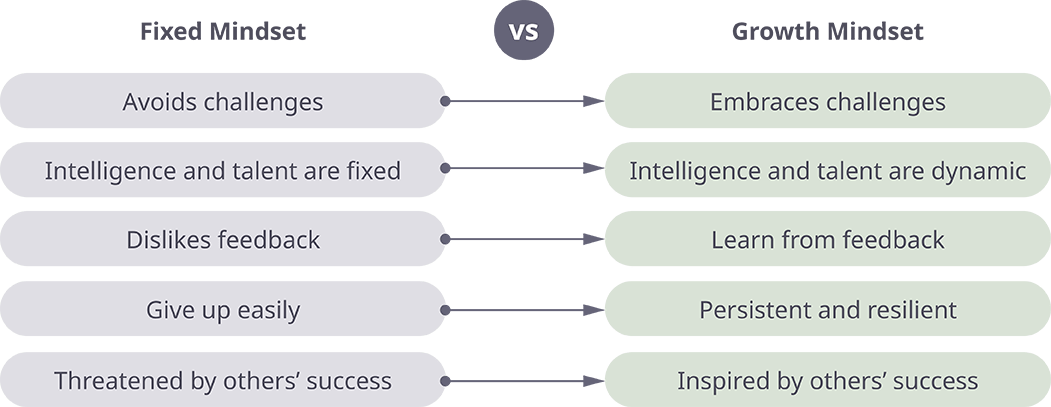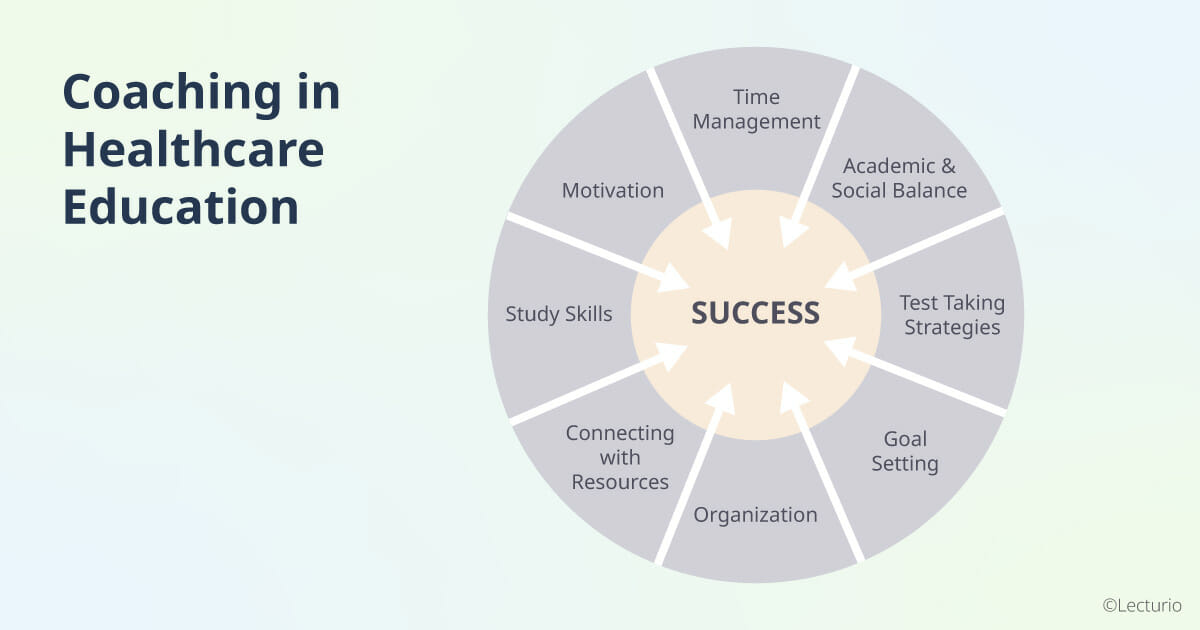What is Coaching?
Coaches help learners set goals, help them monitor their progress, provide feedback, and evaluate their next steps. While coaching may seem similar to other approaches, Mentoring, Advising, and Coaching are distinct roles.
Mentoring is typically mentor-led, with the mentor providing role modeling in their expertise specific to a field or experience. Mentors provide advice and recommendations based on their experience. Similarly, advising also tends to be more advisor-led but may also include individualized recommendations based on learner input. Advising is focused on academic paths such as program requirements and admissions to graduate programs, and may assist learners in finding research opportunities. In contrast, coaching is characterized by being learner-led. The coach helps the learner identify personal needs and challenges, working together to create a plan and find solutions that work for the learner’s unique situation. Rather than telling learners what they need to do, the coach asks questions, allowing the learner to reflect and find their own solutions. Coaches help learners develop a personalized path to achieve their goals (1).

As coaches develop a relationship with learners, they should provide learners with a safe space for informed reflection on academic, personal and professional performance, encourage learner well being by helping learners manage their stress, assist learners in setting and reaching goals that will lead to high levels of academic/professional achievement and personal satisfaction and encourage learners to establish good habits such as continuous reflection, goal setting and lifelong learning (1).
How Does Coaching Work?
There are a number of coaching models, some of which are borrowed from other fields such as business and psychology.
One popular model in healthcare education is Coaching in Medicine (1). The process for the Coaching in Medicine model starts with the learner reflecting on their strengths, weaknesses, and goals with their trusted coach. Then, the coach observes the learner’s performance in a task that reflects their goal. This observation may take place in a clinical setting, but it can also be done asynchronously: observing study habits, knowledge mastery results, or other feedback and data. After the performance, the learner reflects on their performance. The coach then provides feedback based on the learner’s performance and reflections. Finally, the coach and learner work together to determine the next steps to promote improvement.

Goal Setting in Coaching
One important feature of coaching is goal setting. Helping learners create SMART goals (Specific, Measurable, Attainable, Relevant, Timely) can help determine planning, progress towards that goal, and success (2).

SMART goals are specific, meaning they have a defined outcome and use action words. They are measurable, with clear criteria to measure progress and success. They are attainable; a goal should be challenging but also possible to achieve. Goals should be relevant, meaning the goal should be in line with long-term goals and desired outcomes. And, they are timely or time-bound: there is a completion date or time frame in which the outcome should be complete.
Change Management in Coaching
Reaching a goal often means changing a habit or mindset, but resistance to change is part of human nature. We have a natural tendency to fear the unknown, to fear uncertainty. As a result, we find comfort in the status quo, in what is familiar and in our normal routines and habits. Fear of change may also spur loss aversion, or the fear that a change may cause loss of something familiar that we value. Finally, a lack of trust can cause resistance to change. A person may worry the impetus for change lacks a worthy cause or that the change may end up being harmful, not beneficial.
Part of a coach’s job is to help the coachee navigate change. It may be uncomfortable or difficult for coachees to make the changes needed to reach their goals. One way for a coach to encourage change is to promote a growth mindset.

Growth mindset is defined as a belief that views intelligence as malleable and improvable (3). A fixed mindset is often considered the opposite of a growth mindset. Someone with a fixed mindset knows that a challenge may result in failure, so they may avoid challenges entirely. A person with a fixed mindset believes intelligence and talent cannot be changed or improved, and often believe success is a direct result of unchangeable innate abilities. Someone with a fixed mindset dislikes feedback and gives up easily when faced with adversity. They feel threatened by others’ success—if talent can’t be changed, then the success of others means they are inherently lesser or not as good.
On the other hand, learners with a growth mindset are more likely to see success as a result of effort. They embrace challenges and see opportunity for growth in both failure and success. They recognize that intelligence and talent are dynamic and can be changed with consistency and effort. Learners with a growth mindset accept feedback and use it to improve. By encouraging a growth mindset, coaches can help learners be more persistent and resilient when faced with difficulties. Developing this growth mindset can help coachees avoid discouragement and instead be inspired by the achievements and success of others.





